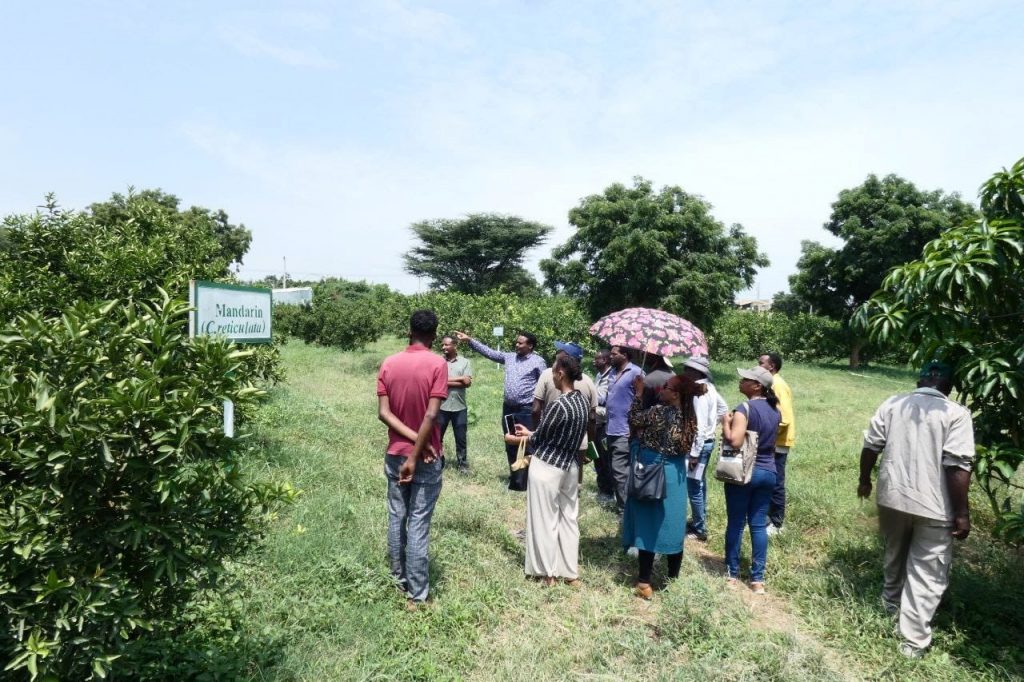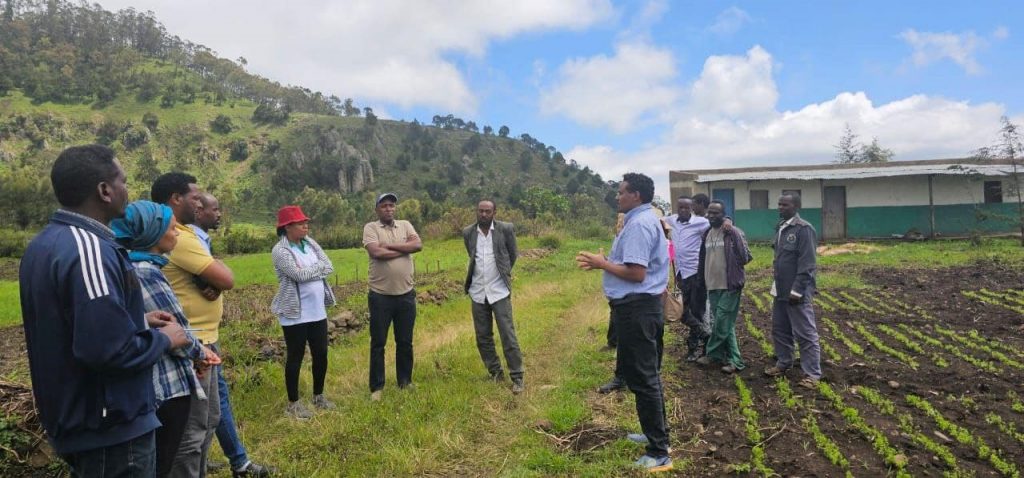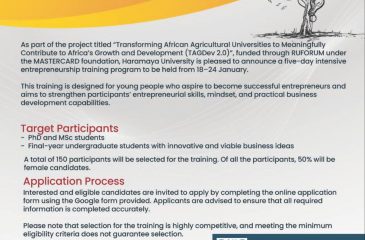Haramaya University recently conducted a comprehensive evaluation of its research stations to assess their current operations and identify opportunities for improvement.

The visit, led by the Vice President for Research and Community Engagement (VPRCE), aimed to develop a strategic action plan to strengthen the stations’ contributions to research, technology development, and community engagement.

The university’s research stations play a vital role in advancing agricultural knowledge and addressing local challenges. Located across various agro ecologies, these stations conduct experiments and provide community services. However, the evaluation revealed several bottlenecks hindering their optimal performance, including inadequate infrastructure and limited resources.

To address these challenges, the team proposed a series of recommendations. These include investing in essential infrastructure, strengthening facilities, and providing necessary support to researchers. By implementing these measures, the university aims to create a more conducive environment for research and community engagement.

Dr. Yesihak Yousuf, the VPRCE, emphasized the importance of research stations in driving agricultural innovation and improving the lives of communities. He stated that the university is committed to investing in these stations to enhance their capabilities and ensure they meet the highest standards of research excellence.

Mr. Ibsa Aliyi, Director of the Research Centre and Facilities Management, highlighted the significant progress made in utilizing the stations for research, particularly in Babile and Fedis. He emphasized the office’s ongoing efforts to modernize and strengthen the facilities to support research activities.

Researchers Mr. Ibsa Aliyi and Berhanu Asfaw underscored the critical need for well-equipped research centers to facilitate the work of researchers. They believe that providing adequate infrastructure will enable the university to produce high-quality research results that can have a substantial impact on society.

By addressing the identified challenges and implementing the proposed action plan, Haramaya University aims to enhance the effectiveness of its research stations and contribute more meaningfully to agricultural development and community well-being.

The research stations at Babile, Errer, Barkalle, Gurawa, Kurfa Challe, Dire Dawa, and Fedis were visited.
Reporter: Shemsedin Mohammed
Photographer: Tewodros Lishan
Haramaya University Public and International Relations Directorate




